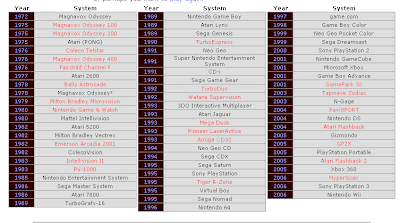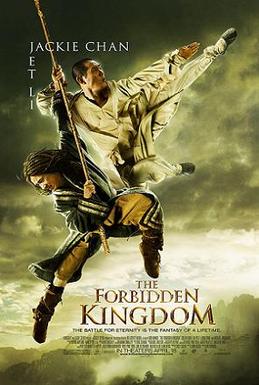 The story of the Butterfly Lovers is a well known Chinese legend about a young woman who dresses as a male in order to become a scholar, falls in love with a senior scholar, but is already betrothed by her parents to another man. The senior took a government position, but died of a broken heart, and when his young lover learned of his death, she threw herself on the tomb, and the earth opened up and swallowed her. Their spirits were reincarnated as butterflies, which emerged from the tomb, never to be parted again.
The story of the Butterfly Lovers is a well known Chinese legend about a young woman who dresses as a male in order to become a scholar, falls in love with a senior scholar, but is already betrothed by her parents to another man. The senior took a government position, but died of a broken heart, and when his young lover learned of his death, she threw herself on the tomb, and the earth opened up and swallowed her. Their spirits were reincarnated as butterflies, which emerged from the tomb, never to be parted again.The story of Butterfly Lovers -- the 2008 film by respected Hong Kong cinematographer and sorta-respected director Jingle Ma -- is much the same, except it transposes the story to a martial arts academy. Whether in deference to the current international popularity of wuxia and martial arts movies or an earnest attempt to do something new and inject life into a story that has been told and retold by so many in every medium from feature film to television, the result is the same. That is to say, middling, daft, and a trifle disapointing. Butterfly Lovers is one of a very few films that is genuinely a Hong Kong production, aimed at Hong Kong audiences, starring actors and featuring the talents of notable crew members that are based in the territory. Almost every wuxia film that has seen theatrical release in the past decade has been a co-production of some sort with extremely heavy involvement from Mainland interests; this is one of the few exceptions. It shows how much the audience in Hong Kong has changed since the early nineties, when films of this type were plentiful. It also makes me think that my favorite movie genre really is just plain dead.
 But for all that, I also have to admit that this movie isn't really made for me. It's made for fifteen year old Chinese girls that admire pop princess Charlene Choi (the half of Canto-pop duo "The Twins" that wasn't involved in a sex scandal with Edison Chen) and have asexual sensual fantasies for Wu Zun, a member of some pop band with a name that's probably so stupid I'm not even going to bother looking it up (as is par the course for Chinese pop bands). And unlike American pop stars, there's not even any real navel gazing to be done. Charlene Choi is cute -- adorable, even -- but her appeal is distinctly and unassailably teeny-bopper. In spite of her being twenty seven years old, it would still be creepy to look at her with any sort of dishonorable intent in the same way that it would be creepy to lift an amorous gaze at a kitten.
But for all that, I also have to admit that this movie isn't really made for me. It's made for fifteen year old Chinese girls that admire pop princess Charlene Choi (the half of Canto-pop duo "The Twins" that wasn't involved in a sex scandal with Edison Chen) and have asexual sensual fantasies for Wu Zun, a member of some pop band with a name that's probably so stupid I'm not even going to bother looking it up (as is par the course for Chinese pop bands). And unlike American pop stars, there's not even any real navel gazing to be done. Charlene Choi is cute -- adorable, even -- but her appeal is distinctly and unassailably teeny-bopper. In spite of her being twenty seven years old, it would still be creepy to look at her with any sort of dishonorable intent in the same way that it would be creepy to lift an amorous gaze at a kitten.That was enough to have made Butterfly Lovers a moderately successful film from a purely financial perspective: cute people. The only problem is that the movie is an insufferable bore. From the moment that Charlene's character, Yanzhi, shows up at the academy, we're forced to watch endless scenes of her bonding with Wu Zun's character, the elder student Zhongshan. This could have made for a pretty fun perverted comedy. Boy thinks he's falling in love with another boy, other boy is really a girl who's hiding her tits, their peers are creeped out because you can totally tell she has boobs!
It's a conceit of wuxia story telling (and Chinese opera-films for that matter) that the most abundantly obvious female can pass for a young boy with a wardrobe change. It's pretty rote at this point, which is why it needed to be handled differently in this movie, and should be handled with more care in the future.
For the first half of the film, it really seems like everybody knows that Yanzhi is a woman and they just don't care. She teaches them to mend their own clothes, openly flirts, is physically weak... she's pretty much fits perfectly snug into her gender role and it's hardly mentioned at all. Even when everybody finds out she's a girl, it doesn't really phase anybody that much. This could have been a cute gag -- that everybody already knows (except the clueless Zhongshan) and finds it funny -- but it really just feels like lazy writing from people who knew that they could get kids to watch this movie if they put the right actors (er... popstars, really) in starring roles.
 Why wouldn't you believe that that's a boy?
Why wouldn't you believe that that's a boy?But the movie takes a sudden turn when Yanzhi's childhood friend, Chengen (mainland actor Hu Ge), conspires with a nasty court official to take control of his hometown. This allows for an all too brief fight sequence between Hu Ge's stunt double and martial artist/actor Fan Siu Wong. Fan is one of the most underrated performers in Hong Kong, having made his debut towards the end of the genre's major popularity and famous mostly for the so-bad-it's-good Riki-Oh (Lam Nai-Choi, 1992). He really has nothing to do here, and neither does the other veteran, Ti Lung, relegated to a boring supporting role that shows none of his considerable acting talent and screen presence.
Perhaps the worst part is that all of the actual court intrigue is only told to the audience, and only the oblique consequences -- that is, what concerns Yanzhi and Zhongshan's budding romance -- are really shown. The film wants for Chengen to be a misguided but ultimately tragic figure. Hu Ge is an actor that could probably pull it off too, but there isn't enough meat to the script for his character to really be anything other than a one-note bad guy. His final fight with Zhongshan is also badly shot, and after everything we've seen the character do, the way that he exits the film is both ludicrous and a complete let down.
 Even worse is the contrivance of the final scene, where the lovers are buried together. (Zounds! That was a spoiler) It doesn't work. It isn't believable. The scene is poorly directed and rather unsettling when it is supposed to be romantic. Do young girls really go for this?
Even worse is the contrivance of the final scene, where the lovers are buried together. (Zounds! That was a spoiler) It doesn't work. It isn't believable. The scene is poorly directed and rather unsettling when it is supposed to be romantic. Do young girls really go for this?Which brings us back to the point made at the beginning of the review: this is not a movie that's meant for me. Ong-Bak 2 (Tony Jaa and Panna Rittikrai, 2008) is probably a movie that was made for me, and so was Ip Man (Wilson Yip, 2008). Those movies are quintessential "guy movies" (I haven't seen either yet) that are all about totally brutal mayhem. Butterfly Lovers is the opposite: basically a "Twins" vehicle (only one of them went missing after pictures of her with a penis in her mouth showed up online). And that's all well and good, but I'm still waiting for new movies that will try for the same James-Bond-in-ancient-China sense of style and pacing that was seen so often in the adaptations of Gu Long novels from the seventies and eighties. Ethereal, soft focus, juvenile wuxia dramas are okay too, but after 2008's Butterfly Lovers and The Empress and the Warriors (directed by Ching Siu-Tung, action director for this movie) it should be obvious that the balancing act between humor, drama, fight scenes, and pretty HK movie stars is getting tiresome.
Jingle Ma is also going to direct a feature film based on the legend of Mulan. Yes, that Mulan. Vicki Zhao has already been cast in the role, and seeing how badly handled the cross-dressing angle was played in Butterfly Lovers, I'm very curious to see how Ma handles it in a film that will supposedly demand a tiny bit more verisimilitude than his last.















